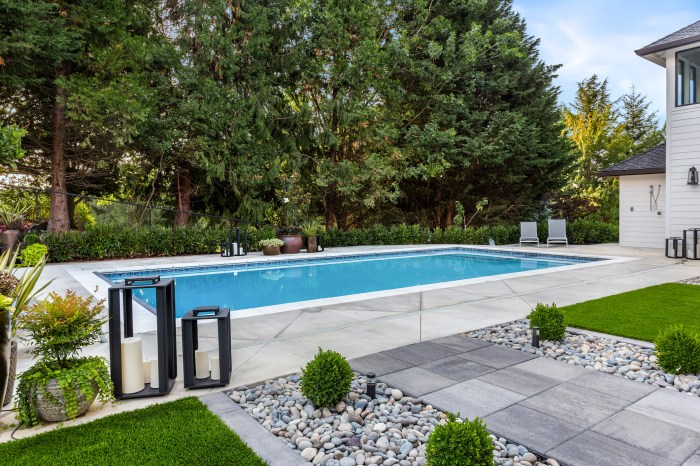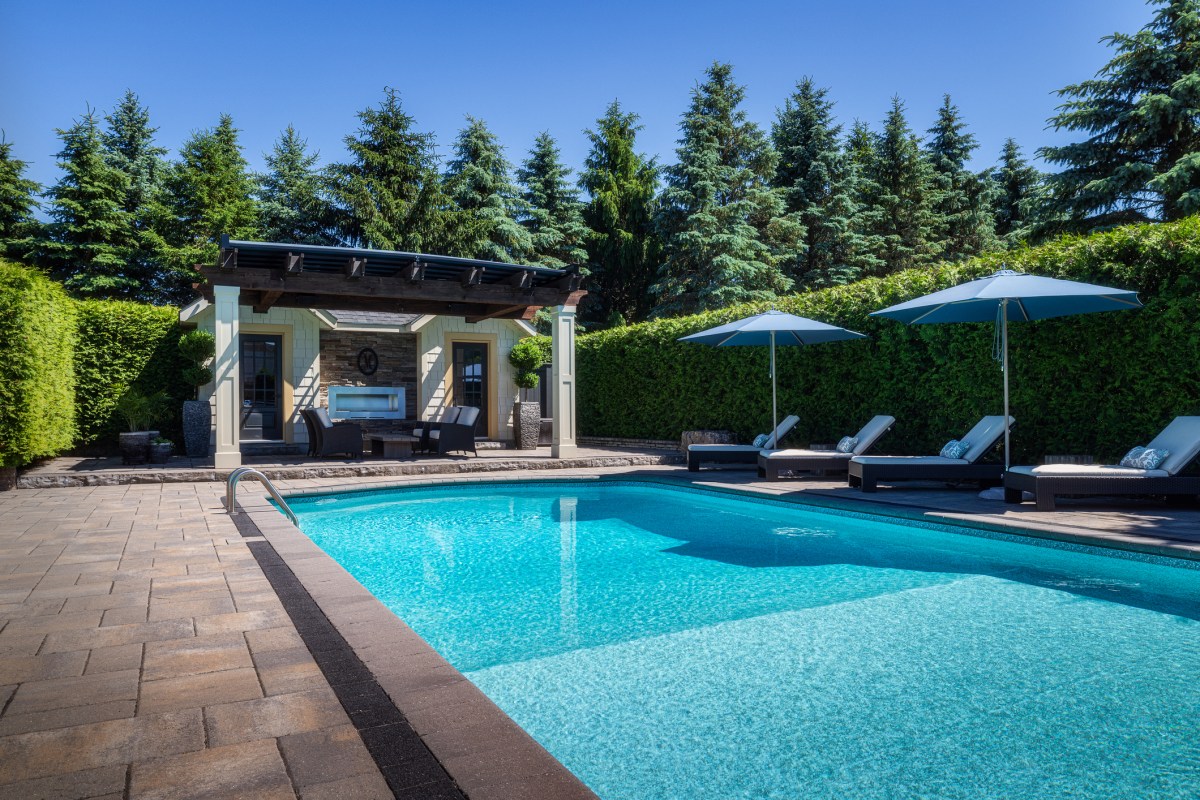As the weather warms up and backyard dreams start bubbling to the surface, many homeowners start entertaining the idea of installing an in-ground pool. While the appeal is undeniable—summer fun, increased home value and a personal oasis just steps from your door—so is the complexity. This is no weekend project. Installing a pool is a significant investment of time, money and planning.
To help guide prospective pool owners, we spoke with a longtime manager from a reputable pool supply company that’s been in business since the 1960s. With nearly a decade of experience advising customers and solving pool problems, the manager shared a wealth of practical, behind-the-scenes advice for anyone diving into pool ownership.
Start with the Right People
“The first thing I tell customers is to get someone reputable to do the job,” the manager said. “And not just one person—get three quotes. Talk to three companies that are licensed, insured and have a strong reputation.”
Make sure each contractor is quoting based on the same vision.
“If you tell one company you want a 14×28 pool and another you say 16×30, you’re going to get wildly different pricing and might not understand why. Be clear. Be consistent.”
Checking online reviews, such as those on Yelp, can offer additional peace of mind, but nothing beats word-of-mouth and a solid track record.
“I had a pool installed in the ‘90s and it turned into a nightmare. The company hit a river under my backyard and everything spiraled—extra equipment, rising costs, town involvement. You name it. It taught me the importance of doing your homework.”
Know What Permits You’ll Need
One of the biggest headaches pool owners face is improper or incomplete permitting.

“You need to make sure your installer pulls all the proper permits from both your town and county,” the manager said. “Some towns are incorporated and have different rules that supersede county regulations.”
A pool that isn’t properly documented can be a problem down the line—especially when it’s time to sell.
“You don’t want to be in a situation where your home has a $100,000 pool that isn’t on your Certificate of Occupancy. That’s a real financial risk.”
Understand Your Yard and Access
Not every backyard is ready for a pool. Before committing, assess the size, slope and accessibility of the space.
“Can the equipment get back there? What’s underground? Do you want a gas heater—and if so, do you have a gas line? If not, will you go electric? Do you have enough panel space in your home for the electrical draw?”
A professional installer should be able to answer all these questions and help you plan accordingly.
Plan for the Long-Term
Installing the pool is only half the story. Maintenance is key to keeping your investment in top shape—and your water clean and safe.
“Once the pool is in, you have to ask yourself: Am I going to maintain it myself? Will I hire someone to open and close it? Do I want weekly service?” the manager asked.
For those looking to save money, the DIY route is viable with a bit of effort.
“If you can commit to spending 20 to 30 minutes a week, you can manage it yourself. Bring your water to a pool store once a week, get it tested for free and add what’s needed. You’ll save thousands a year.”
Be Wary of Jack-of-All-Trades
One of the more cautionary tales involved a homeowner who had his general contractor—who was already working on his house—attempt to install the pool. It didn’t end well.
“I went to check it out and it was a disaster. Nothing was done to code. I brought in a pool expert and he said, ‘This all needs to be ripped out.’ That poor guy had to start from scratch.”
Pool installation requires a specialist—someone who understands code, permitting, structural concerns, plumbing and electrical.
“Even if your contractor has built homes, that doesn’t mean they know pools.” he said.
Budget Realistically
“In-ground pools aren’t cheap,” the manager said. “And sometimes, the better companies charge more—but you’re paying for experience, reliability and fewer headaches.”
Unexpected issues like water tables, utility line problems or access constraints can drive up costs quickly. Budget not just for the install but also for landscaping, fencing, accessories like heaters or covers and annual maintenance.
Ask the Right Questions
Whether you’re just thinking about installing a pool or ready to dive in, come prepared.
“Write down your questions. Talk to a few pool stores, not just contractors. Ask about equipment, permits, what kind of chemicals you’ll need and how to maintain your pool year-round.”
Don’t be afraid to shop around for information—not just the product.
“If you walk into a store and someone can’t answer your questions, go somewhere else. Talk to someone who’s been doing this for a while. If they don’t know something, they should be willing to find out for you. That’s how it should be.”
Don’t Forget About Above-Ground Options
While in-ground pools get the spotlight, above-ground pools remain popular, especially for families looking for a more affordable, less permanent solution.
“They’re still big sellers,” the manager said. “We sell complete packages that get delivered to your house and we recommend licensed installers to do the job. It’s a good option if you’re not ready to commit to the excavation and expense of an in-ground pool.”
Bottom Line: Do Your Homework
Installing a pool is a major home improvement project, one that involves permits, contractors, equipment, long-term care and ongoing costs. But with proper research and the right team, it can also be a smart and rewarding investment.
“You want to enjoy your pool,” the manager said. “You don’t want to spend your summer fighting with contractors or dealing with the town. Take your time, ask questions and do it right the first time.”
And if you’re ever unsure, don’t hesitate to reach out to a reputable local pool expert. A little guidance can go a long way.

